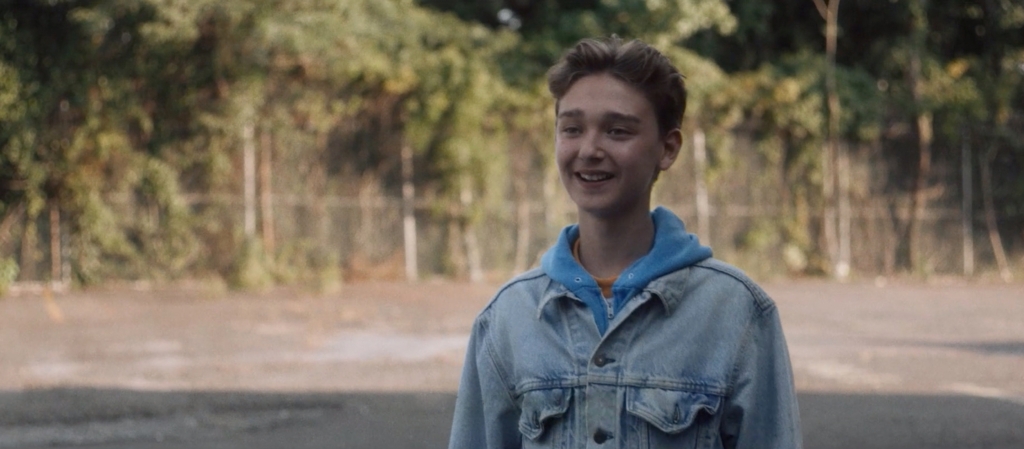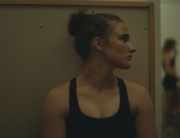
Coming-of-age films are often lazy and self-indulgent. The impulse to relive a time of possibility, first kisses and big dreams, can feel like an attempt to avoid the challenges of adult life. Still, this year has yielded several that are strong, poignant, and surprising. Premature dealt beautifully with a young woman’s final summer before college; Beats captured class dynamics, police violence, and the euphoria of dance parties; Shithouse faced the awkwardness of college students and created a moving romance. These, and many others, prove that, in the right hands, we can see familiar stories with fresh eyes.
While 18 to Party does not join their company, it remains a fascinating experiment. “Experiment” is perhaps a strange word for a film that so clearly harkens back to classics like Stand by Me, The Breakfast Club, and Dazed and Confused, and that hits so many coming-of-age movie buttons. Here, there is a trip to a spooky construction site, arguments about music (U2 stole their sound from the Alarm, one teen claims), and knowing complaints about parents. Yet the movie is built entirely around a period of waiting.
The year is 1984, the place is upstate New York, school has just started, and a group of eighth graders are waiting to get inside a nightclub. The older high school kids, who are all stylish, attractive, and cigarette toting, gather in front, while the younger kids are banished to the back of the building, unsure if they will be let inside. As we wait with them, we learn about their struggles, which involve neglectful parents, the trauma of recent suicides of classmates, and their relationships with each other. There is also repeated talk of a UFO sighting, and a community meeting on the subject is presumably what occupies their ex-hippie parents.
Writer/director Jeff Roda makes a concerted effort to give each character depth and a revealing dramatic moment. His dialogue has a naturalistic rhythm, lightly peppered with period-specific comments, such as on Reagan’s presidency, and to illuminate some pressing concerns, like watching childhood friends change beyond recognition. However, some characters are more developed than others, and there might be a few too many of them to focus on, given the 80-minute running time. Still, the young actors do well with the material.
Nevertheless, there are some ways in which Roda does not go far enough to vary the rhythm of his piece, and other ways in which he tries too hard. In spite of his close attention to the characters, he has them arguing among each other for too long to fully hold our attention. Roda relies on the kids belittling one another so much that he begins to chip away at the naturalistic flow of the dialogue.
On the other hand, while some of the more dramatic events are strong, others come across as underdeveloped attempts to keep the film from stagnating. Many of the less successful moments come toward the end, where too many incidents are crammed in. While the actors are mostly strong, one feels for Alivia Clark, as Amy, whose function is to carry exposition, provide the obligatory first kiss, and set off one of the least convincing events.
While this film does not entirely succeed, it is still likely to scratch the itch of those with a soft spot for the genre.
















Leave A Comment